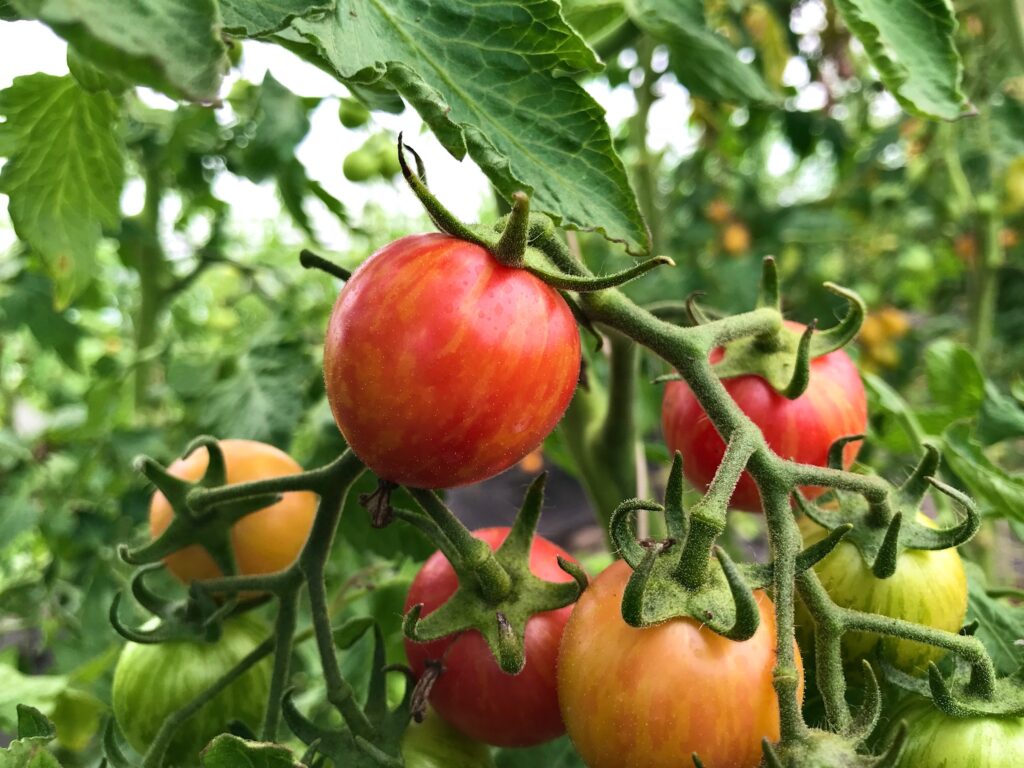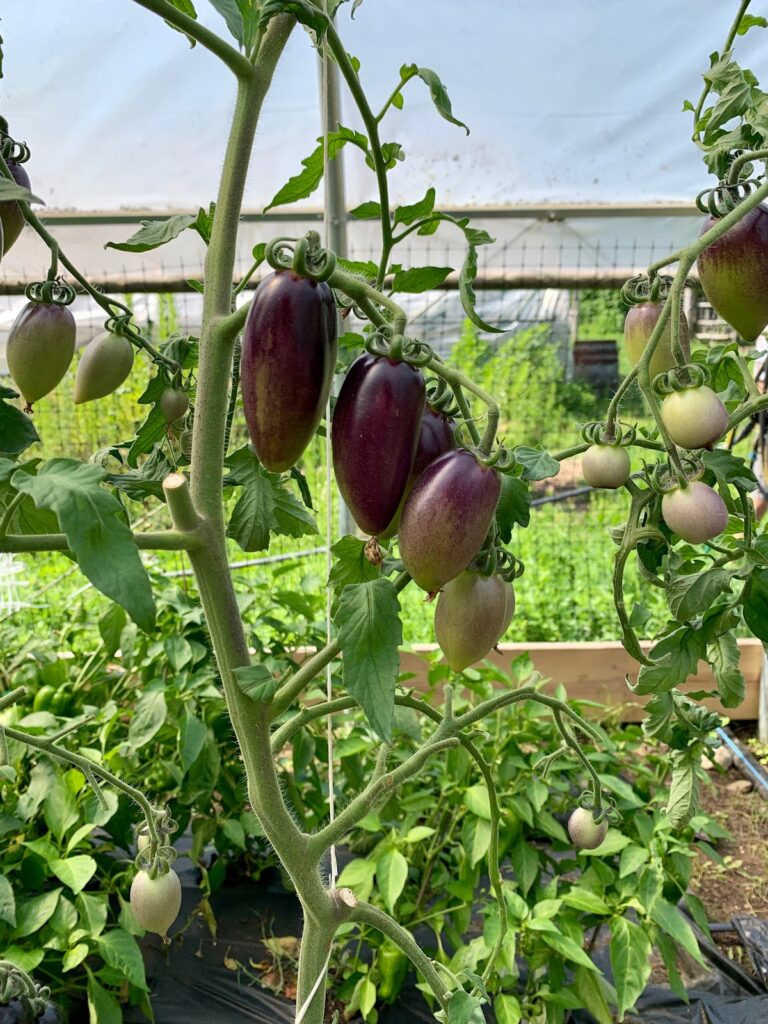Hello from the farm! Lucie here. If you’ve tuned into Fable goings-on recently, you have likely been seeing a lot of heirloom tomato content. If you’re lucky, you’ve gotten your hands on some yourself before they sold out at the market.

The other week in the greenhouse, Ben and Austin pointed out our Midnight Roma tomatoes to me. Before they had mentioned the tomato variety, I was convinced they were figs, as the fruits were just starting to turn their characteristic deep purple. Our Midnight Roma tomatoes grew from seed that hails from Row 7 Seed company. Upon hearing about Row 7, I was intrigued and decided to look further into it.
In a quite serendipitous moment soon thereafter, I was watching a video by Bon Appetit where Christina Chaey and Claire Saffitz developed the perfect Thanksgiving side dish by virtue of finding the perfect squash. They mentioned a honey butternut squash grown from Row 7 seeds, and brought in the founder on the episode to discuss Row 7. Needless to say, it is a hot topic in the food world, from kitchens to labs to farms.
Row 7 is a company that works with regional farmers and chefs to develop flavor-enhancing vegetables from cross-pollinated seeds. For instance, a habanero pepper with a floral hint is a recent creation. Or, our very own Midnight Roma tomatoes. It is almost like a think tank of flavor-enthusiasts that combines scientific knowledge with organic farming practices.

The Midnight Roma that grows in our greenhouse is a deep-purple paste tomato packed with phytonutrients which are chemicals produced by plants to help them resist fungi, bacteria, and viruses. Phytonutrients also have antioxidant and anti-inflammatory properties that can help support a healthy human body.
At Fable, we say “shop like a chef.” Companies such as Row 7 “bring new, innovative varieties of vegetables out of restaurants and into the larger food system” and very deliberately factor in expert culinary knowledge to ensure that these plant varieties are bred for flavor. Those of us at Fable turn our attention and energy into growing produce that is unique in flavor and quality, and partnering with farms who do the same. Knowing our seed company is a surefire way to have control over what we grow and how it will taste.
I find more and more that sustainable farming is all about creativity and innovation. Whether it is finding a way to build a mobile chicken coop, or selectively breeding organic crops for flavor using scientific and culinary knowledge, it requires a great deal of time spent in the idea factory. Don’t underestimate your local farmer!
